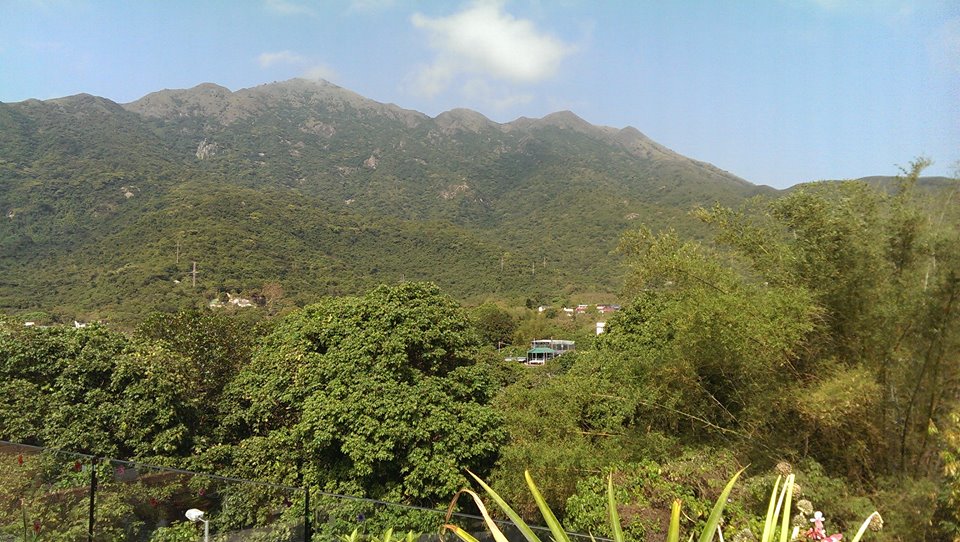By Kathryn Davies
Hong Kong officials have managed to add a new term to my vocabulary: unpublic public consultation. It is something called “public” which blatantly excludes the public.
I feel the public has a right to know what happened behind practically closed doors on March 22 in Mui Wo. The event was part of the Planning Department’s 2030+ plan public consultation period, which ended this past Sunday, and this particular consultation was hosted by Islands District Councillor Randy Yu.
I am closely following the 2030+ plans, and particularly the East Lantau Metropolis concept, as I care greatly about Hong Kong’s future as well as its incredibly rich and beautiful natural environment. So a public consultation in Mui Wo would have been of much interest.

I was very surprised when on March 22 around 6pm a friend messaged me a picture of the notice for the public consultation that she had spotted near the Mui Wo Rural Committee building. Neither of us had prior knowledge of this event.
Unsurprisingly the attendance was very low (around 40 people), hardly representative of Mui Wo or Lantau residents, and it seemed to consist mostly of indigenous male village leaders. Photography and recordings were not allowed.
This was a fake public consultation, in essence a private meeting, and what is truly disturbing was the almost-exclusive access government officials gave to Lantau rural leaders, all of whom support the 2030+ plan.
This plan is a massive project that will permanently change Hong Kong and affect all Hong Kong residents, particularly those on Lantau. Such an unpublic public consultation allows the government to move forward with plans that serve only private, development interests.

To announce this event, just three flyers were posted along Mui Wo Rural Committee Road, and absolutely none were placed along the walkways or the ferry pier.
When this poor publicity was raised during the meeting Randy Yu, Islands District Councillor, said that he could not reach out to everyone in Mui Wo, and was “sorry” if others did not come.
But a few weeks before the Civil Engineering and Development Department actually did reach out to every Mui Wo resident for its public workshop on Phase 2/3 of the Mui Wo Facelift plan. They put large banners along popular walkways and they sent out flyers to every mailbox.
That CEDD workshop was well attended and many commented on how well organized it was: tables were set up with an official at each one so that the public could have a more intimate feedback session.
The March 22 consultation, by contrast, was barely announced at all. This leads to suspicions that the whole exercise was orchestrated simply to obtain support for the 2030+ plan.
This plan will negatively affect Mui Wo more than any other place in Hong Kong, and as such there needs to be careful consultation with the residents. Yet, fostering protection for wildlife, farmers, and a unique car-free lifestyle involves little financial gain and would not be of interest to major property developers.
Two voices were notably absent at this consultation. First, because of the concentration on rural village leaders, women were scarce. The other voice, which is inevitably silent at any public consultation is that of nature and wildlife.
While these voices were not present, it is worthwhile to mention some of the comments from those that were. The rural leaders, in my opinion, expressed a greedy, short-sighted “what’s in it for me?” attitude, mentioning an interest in “sharing” (read: profiting from land sales) their land as well as desiring more and wider roads in Lantau.
But what is in it for their children, grandchildren, and great grandchildren if their land is sold off and concreted over? Any approach to development on Lantau should be seen as a long-term investment in its cultural and ecological value, not simply a one-time sale.

I was also very disturbed by Randy Yu’s comments, which suggested that he strongly supports the plan. The approach was that big developers and government henchmen will simply tell the public how it will be. Mr Yu has held positions with Sino Land and Henderson Land, and also has personal ties with the Heung Yee Kuk. The fact that he was the key organizer of an event portrayed as a public consultation is worrisome.
Bizarrely, Government officials managed to sit before a group of privileged male village leaders, who are pocketing millions of dollars from houses built through the Small House Policy, and say how we must help those living in caged homes.
A government official also asked the public to contact their Legco members to urge them to approve the necessary funding for the plan, which I felt was inappropriate. The public can judge for themselves whether to urge officials to approve funding.
As a teacher of tertiary students in Hong Kong, I am often told of the bleak future young people see for themselves in Hong Kong. They cannot dream of affording their own tiny apartment, they have little connection with nature, and they feel powerless. This kind of public consultation simply confirms their fears.
Government departments and officials have a duty to reach out to the public and find innovative solutions to improve the quality of life for all Hong Kongers. Given the finite space and incredible landscape and biodiversity, however, we must think beyond the old development model that has just been making the fat cats fatter.
I urge the public to take part however they can in the planning of this mammoth project. Write to your Legco member, asking for a transparent public consultation, and a longer consultation period. There is petition for an extension here.
Kathryn Davies is a part-time teacher at the Hong Kong Academy for Performing Arts and PhD student at the University of Hong Kong. She was producer and host of the RTHK CIBS programme “Green Hong Kong – Eco-lifestyle in a Big City”.
